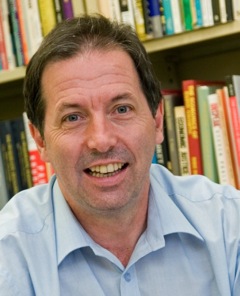A Quote by Jeremy Grantham
We could solve all our problems if only we were the efficient, rational human beings of standard economic theory and had politicians willing to think in the long-term interest of their people rather than their own.
Related Quotes
Mahatma Gandhi I would say had perhaps a greater spiritual quality whereas Winston Churchill had besides the courage, ability and above everything else, the ability to put into words what his people felt so that he could always lead them. And my own husband I think had great patience, which you need in a democracy because you have to come to do fundamental things, you have to have the patience to have people educated; and then I think he had a deep interest in human beings as human beings.
As Mazzini said ... it is around the standard of duty rather than around the standard of self-interest that men must rally to win the rights of man. And herein may we see the deep philosophy of Him who bade men love their neighbors as themselves. In that spirit, and in no other, is the power to solve social problems and carry civilization onward.
We are more than our problems. Even if our problem is our own behavior, the problem is not who we are-it's what we did. It's okay to have problems. It's okay to talk about problems-at appropriate times, and with safe people. It's okay to solve problems. And we're okay, even when we have, or someone we love has a problem. We don't have to forfeit our personal power or our self-esteem. We have solved exactly the problems we've needed to solve to become who we are.
In the early 1980s, the government of New Zealand fell into the hands of true believers, globalist believers, and they embraced the theory of inevitability perhaps more completely than anybody else. And it solved in the very short term some of their debt problems, but in the medium- and long-term, it left them in real economic trouble.
It’s in our interest to take care of others. Self-centrednes s is opposed to basic human nature. In our own interest as human beings we need to pay attention to our inner values. Sometimes people think compassion is only of help to others, while we get no benefit. This is a mistake. When you concern yourself with others, you naturally develop a sense of self-confidence . To help others takes courage and inner strength.
Those guys are doing the Koch Brothers bidding and are against all the evidence of the rational mind, saying global warming does not exit. They are contemptible human beings. I wish there were a law you could punish them with. I don’t think there is a law that you can punish those politicians under.
None of us are rational economic men as we're supposed to be portrayed in economic theory where mixes of passions, of desires, of moral principles, of self-deception, of altruism, of concern of others, of concerns for ourselves and an interest in our bank accounts. And social policies have to be responsive to the complexity of who we are as people or else, like the war on drugs, they're simply going to fail.
The term "rational" and its variants (rationality, rationalism) are used in a lot of contexts in economic debate, both positively and negatively, but nearly always sloppily or dishonestly. A specimen I've seen on more occasions than I can count is the line (usually presented with a sense of witty originality) "if you are opposed to economic rationalism, you must be in favor of economic irrationalism"... I've come to the conclusion that the word "rational" has no meaning that cannot better be conveyed by some alternative term and that the best advice is probably to avoid it altogether.



































